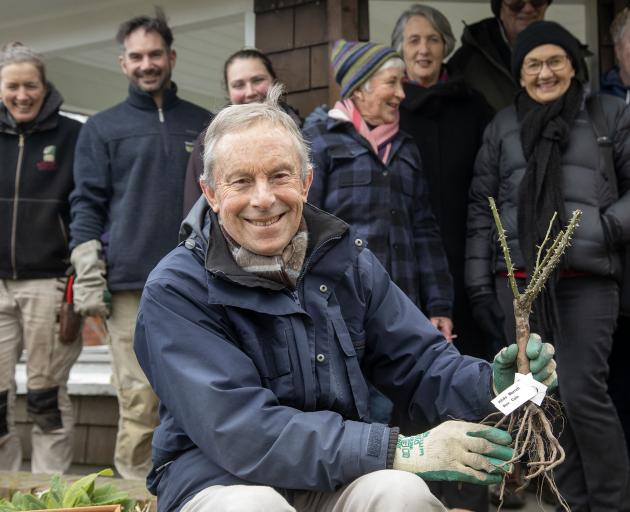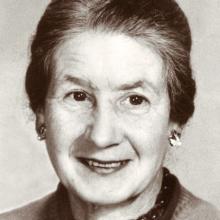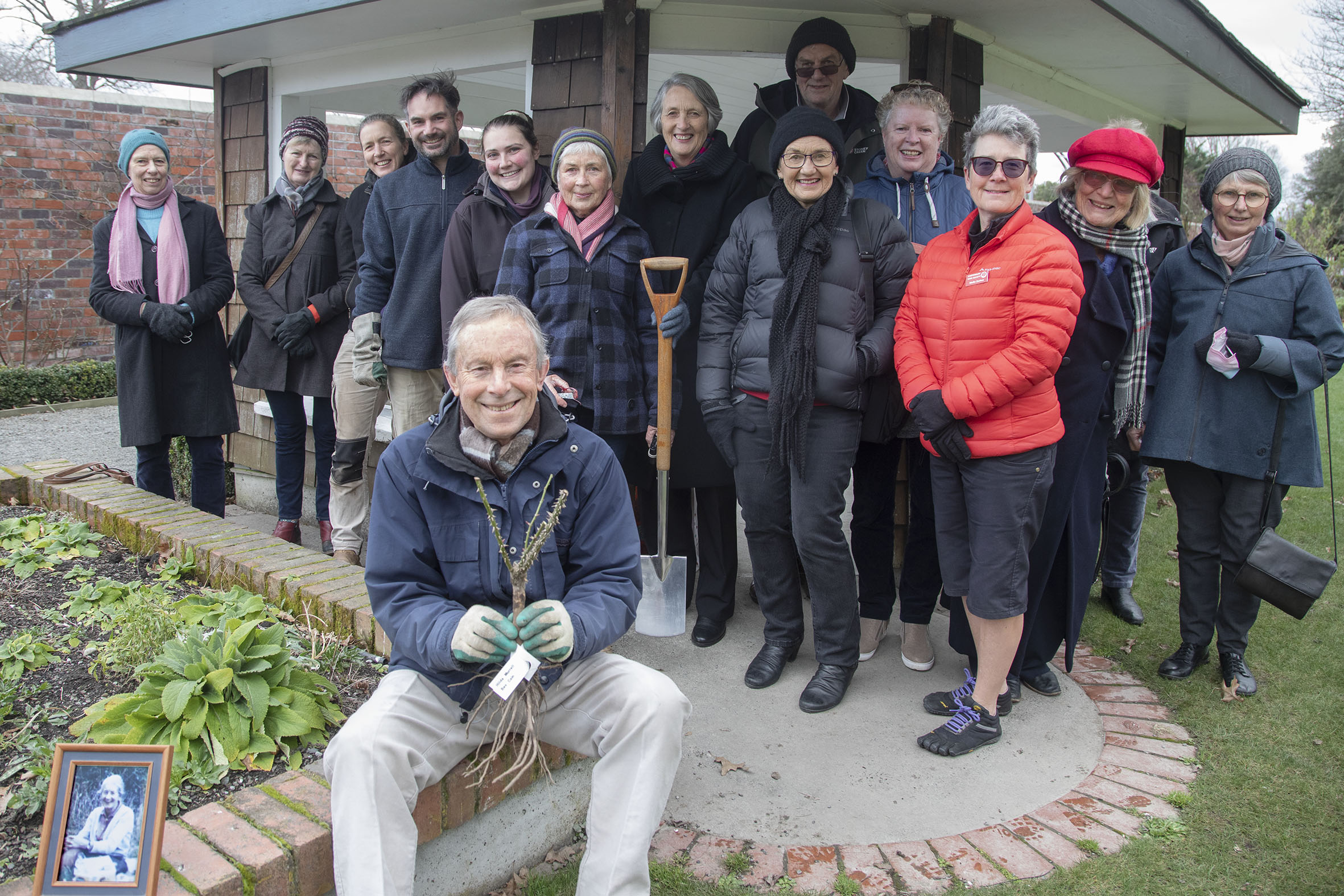

While a person was arrested and sent to prison for her murder in 2005, there is still uncertainty surrounding her "bizarre, strange" death, including the role of British intelligence.
A prominent figure at the rose planting ceremony, her nephew Robert Green published a book about her death called A Thorn in Their Side in 2013.
In his book, Green explored new evidence that should have acquitted the charged man and exposes police errors from their investigation.
Green served for 20 years in the British Royal Navy, from 1962-82, where he worked with nuclear depth-bombs and as an intelligence officer during the Falklands War.
Now a leading figure in talking about disarmament, including nuclear, he lives in Christchurch and is married to Dr Kate Dewes - another prominent figure in this area.
The rose planted on Tuesday was named after Murrell just three weeks before she was murdered, as a tribute to her and the international respect she had gained as a rose-grower by David Austin, a famous rose grower himself.
"This was an old-fashioned rose which was developed by a famous rose grower in England called David Austin back in the 1980s and 90s," Green told The Star.
"He knew my aunt ... admired her, and this rose, as she described it in her own diary ... it’s an old-fashioned warm pink after the manner of Constance Spry.”

These older roses, like the Hilda Murrell rose, are different to those more modern, as they only flower once a year.
"They have a very strong scent and they’re all very special. They have a long history going back hundreds of years," Green said.
He said the stock of Hilda’s rose almost died out in the United Kingdom, but some New Zealand rose growers worked “diligently” to propagate the plant.
There are now 11 plants ready to be distributed to the rest of the country, starting in Christchurch.
"I am confident that Hilda would have been delighted to know [it]."
Murrell was also a campaigner against nuclear waste from the nuclear power plants that generate electricity.
"The problem of nuclear power plants is that if they go wrong then they have hundreds of times the radioactivity in them than nuclear weapons ... it can spread on the wind, and you can’t get rid of it for years and years, and it’s basically poisonous," Green said.

"She was also concerned about nuclear weapons, but her primary concern was about waste."
Green and Dewes were at the 77th anniversary gathering in Hagley Park for the atomic bombings of Nagasaki and Hiroshima last Sunday.












